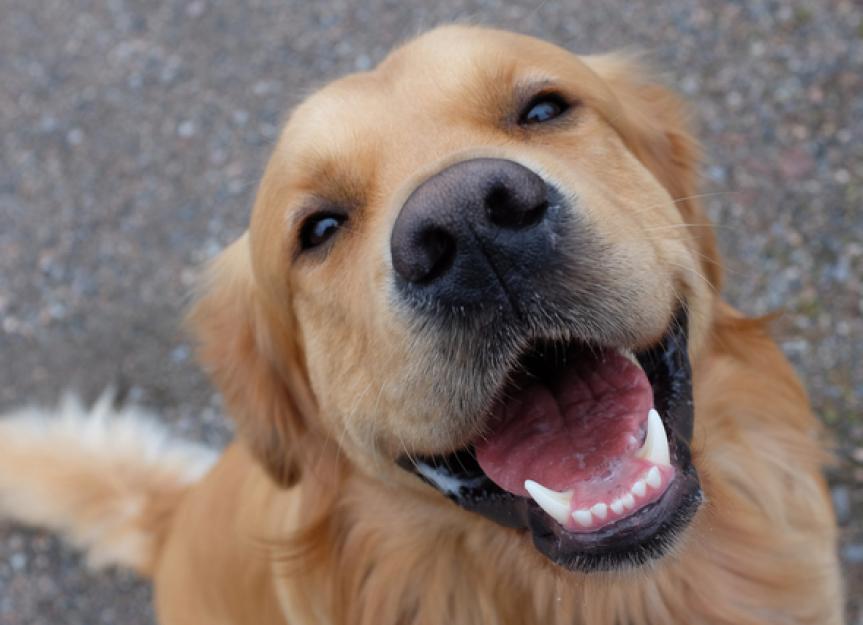Have you ever looked at your dog and just known they were feeling a bit down, maybe even a little put out? It's a common sight, you know, that look of quiet displeasure or a sudden, almost dramatic turning away. This behavior, often called "dog sulking," can leave many pet parents wondering what on earth they did wrong or what's going on in their furry friend's mind. It's actually a pretty interesting area to think about, especially when we consider how much our dogs depend on us for, at minimum, food and shelter, and truly deserve much more, as we often say.
Figuring out why your dog seems to be sulking can feel like a bit of a mystery, can't it? We see them withdraw, maybe give us the cold shoulder, or even sigh dramatically. It’s natural to feel a pang of worry or confusion when your normally happy companion suddenly acts distant, like your dog is upset with you, perhaps. Understanding these quiet signals is, in fact, a big part of responsible dog ownership, a commitment that truly entails a lot.
This idea of a dog "sulking" isn't just about them being moody, though. It often points to something deeper, a shift in their routine, a change in their feelings, or even just a reaction to something you did, or didn't do, for that matter. We want to help you figure out these subtle cues, so you can make things right and keep your dog feeling good, because they really do deserve our best care.
Table of Contents
- What is Dog Sulking, Anyway?
- Why Do Dogs "Sulk"? Common Reasons
- How to Help a Sulking Dog Feel Better
- Frequently Asked Questions About Dog Sulking
- Conclusion
What is Dog Sulking, Anyway?
When we talk about dog sulking, we're really talking about a set of behaviors that suggest a dog is feeling upset or withdrawn. It's not quite the same as human sulking, which involves complex emotions like resentment or indignation, you know. For dogs, it's more about their reaction to something that has changed or something they don't like, and they communicate this through their body language, too.
They might not be consciously trying to make you feel guilty, but their actions can certainly have that effect. It's their way of expressing discomfort or dissatisfaction. This could be a response to a scolding, a change in their daily schedule, or even something as simple as you paying attention to another pet or person. It's their method of telling you, in a way, that something isn't quite right for them.
Signs Your Dog Might Be Sulking
So, how do you actually spot a sulking dog? There are a few clear signs to watch for, you see. They might turn their back to you, avoid eye contact, or even walk away when you try to approach them. It's almost like they are giving you the silent treatment, in a manner of speaking.
- **Avoiding eye contact:** They might look away when you try to meet their gaze.
- **Turning their back:** Literally turning their body away from you or the situation.
- **Reduced interaction:** Not coming when called, ignoring invitations to play, or just generally being less engaged.
- **Lethargy:** Seeming a bit more tired or less energetic than usual.
- **Dramatic sighs:** Some dogs are quite good at expressing their displeasure with a big, audible sigh, as a matter of fact.
- **Hiding or retreating:** Going to their bed or a quiet corner and staying there.
- **Changes in appetite:** Eating less, or sometimes, interestingly, more, due to stress.
These actions are their way of communicating, basically. They're telling you, without words, that they're feeling a particular way. It's really up to us, as their caretakers, to pay close attention to these signals and try to figure out what's going on with them, you know.
Why Do Dogs "Sulk"? Common Reasons
Dogs, like people, react to their environment and the actions of others. When a dog appears to be sulking, it's usually a reaction to a specific event or change. Understanding these triggers is key to helping them feel better, as a matter of fact. It’s not about them being manipulative, but rather expressing a need or discomfort.
The reasons behind a dog's sulking can be quite varied, from simple misunderstandings to deeper emotional responses. It's often tied to their desire for routine, attention, or just feeling safe and secure. We need to remember that they are very much creatures of habit, and disruptions can be unsettling for them, too.
Changes in Routine or Environment
Dogs thrive on routine, don't they? A sudden change can throw them off. This might include a new work schedule for you, moving to a different home, or even just rearranging the furniture. Any disruption to their predictable day can cause stress, and that stress might show up as sulking, you know.
For instance, if their usual walk time changes, or if they're used to getting a treat at a certain hour and it doesn't happen, they might feel a bit put out. It's their way of saying, "Hey, this isn't how it usually goes!" We, as owners, need to remember how important consistency is for them, actually.
Feeling Left Out or Ignored
Dogs are social animals, quite frankly. They love being part of the family and getting attention. If they suddenly feel ignored, perhaps because a new baby arrived, or you got another pet, they might start to sulk. It's a way of saying, "What about me?" and seeking your notice, in a way.
This is especially true for breeds known for being very people-oriented, like many of the popular dog breeds in America that top the AKC's registration statistics. They truly crave that connection. If you're spending a lot of time with a new hobby or a new person, your dog might notice and feel a little neglected, apparently.
Disappointment or Frustration
Imagine being all excited for a walk, only for it to rain, or for you to suddenly be busy. Dogs experience similar feelings of disappointment, you see. They might have been looking forward to something, like a game of fetch or a trip to the park, and when it doesn't happen, they can get quite frustrated, you know.
This also happens if they're not allowed to do something they really want to do, like chase a squirrel or greet another dog. They might express this frustration by withdrawing. It's a very real emotion for them, and they don't always know how to process it quietly, so they might just shut down a little bit, basically.
Physical Discomfort or Illness
Sometimes, what looks like sulking is actually a sign of physical discomfort or illness. A dog that's not feeling well might become withdrawn, quiet, and less interactive. They might not want to play or even eat their favorite food, which is a pretty big red flag, isn't it?
If your dog's "sulking" seems out of character, or if it's accompanied by other symptoms like lethargy, changes in appetite, or limping, it's always best to rule out a medical issue first. A trip to the vet is always a good idea in these cases, just to be safe, you know.
Past Experiences and Associations
Dogs remember things, and they can associate certain actions or situations with negative outcomes. For instance, if they were scolded after chewing on something, they might "sulk" when they see that object again, or when you use a similar tone of voice. They're making a connection, you see, between the past event and the present moment.
This is particularly important for dogs who might have come from a rescue situation, like those helped by the AKC Rescue Network. They may have past traumas or negative associations that make them more sensitive to certain triggers. Understanding their history can help you interpret their behavior better, in fact.
How to Help a Sulking Dog Feel Better
Once you've noticed your dog is sulking, the next step is to help them snap out of it. This isn't about spoiling them, but rather about addressing their emotional needs and strengthening your bond. It's about showing them you understand and care, which is very important for their well-being, naturally.
Helping a sulking dog often involves a combination of patience, observation, and positive reinforcement. It’s about being present for them and offering comfort in a way they understand. We want them to feel safe and loved, after all, and that means paying attention to their emotional state, too.
Identify the Cause
The very first step is to try and figure out *why* your dog is sulking. Did something specific happen just before they started acting this way? Did you scold them, leave them alone for a long time, or introduce something new into their environment? Thinking back can often give you clues, honestly.
Observe their surroundings, your recent interactions, and any changes in the household. Was there a loud noise? Did a new person come over? Pinpointing the trigger makes it much easier to address the issue directly. It's like being a detective for your dog's feelings, you know.
Offer Reassurance and Positive Attention
Once you have an idea of the cause, offer gentle reassurance. This doesn't mean rewarding the sulking behavior, but rather acknowledging their feelings and showing them love. A calm voice, a gentle stroke, or just sitting quietly near them can make a big difference, you see.
Engage them in a favorite activity, like a short play session or a quiet cuddle. For example, if your dog is a small breed like a Chihuahua or a Pomeranian, they might enjoy being held close. This reminds them they are still valued and loved, which is, quite frankly, what they need most when they are feeling down.
Maintain a Predictable Routine
If the sulking is due to a disrupted routine, try to re-establish consistency as quickly as possible. Dogs feel more secure when they know what to expect. Stick to regular feeding times, walk schedules, and play sessions, if you can, anyway.
Even small efforts to maintain predictability can help reduce their stress and make them feel more comfortable. This stability is very comforting for them, and it helps them feel safe in their home. It's a fundamental part of responsible dog ownership, too, giving them that sense of order.
Provide Enrichment and Play
Sometimes, sulking can stem from boredom or a lack of mental and physical stimulation. Offering engaging toys, puzzle feeders, or interactive play can help lift their spirits. A good game of fetch or a challenging treat dispenser can distract them from their woes and bring back some joy, you know.
Consider new activities or even dog sports that can engage their minds and bodies. The AKC actively advocates for advancing dog sports, and for good reason! These activities can provide an outlet for energy and help them feel more fulfilled. It's a great way to bond and improve their mood, basically.
When to Seek Professional Help
If your dog's sulking is persistent, severe, or accompanied by other worrying symptoms, it's always wise to consult a veterinarian or a certified professional dog trainer. They can help rule out underlying medical issues or behavioral problems that require expert intervention. Sometimes, a professional eye is exactly what's needed, you know.
For instance, if your dog's behavior changes dramatically after you've brought home a new pet or if they're showing signs of anxiety, a professional can offer tailored advice. They might even suggest resources like the AKC Rescue Network for advice on handling specific behavioral challenges, if it's a rescue dog with a past, too.
Frequently Asked Questions About Dog Sulking
People often have similar questions about this interesting behavior. Here are some common ones that come up, you know, when folks are trying to understand their furry friends better.
Can dogs actually sulk?
While dogs don't experience complex human emotions like spite, they do exhibit behaviors that appear like sulking. These actions are usually a response to feeling upset, frustrated, or ignored. It's their way of communicating discomfort or dissatisfaction, basically. They're telling you something is off, in a way.
What does a sulking dog look like?
A dog that seems to be sulking might turn their back on you, avoid eye contact, or retreat to a quiet spot. They might also show less interest in their usual activities, sigh dramatically, or seem generally withdrawn. It's often a quiet form of protest, you see, rather than an active one.
How do you make a sulking dog happy?
To help a sulking dog, first try to identify what caused their behavior. Then, offer calm reassurance, positive attention, and engage them in their favorite activities. Maintaining a consistent routine and providing plenty of mental and physical stimulation can also help. Sometimes, a favorite toy from the AKC Shop can do the trick, too.
Conclusion
Understanding what "dog sulking" truly means for your pet is a big step towards a stronger bond. It's not about them being stubborn or manipulative, but rather their way of communicating feelings of discomfort or unhappiness. By paying close attention to their body language and the context of their behavior, you can often pinpoint the cause and help them feel better, you know.
Remember, when you take a dog into your life, you need to understand the commitment that dog ownership entails. This includes recognizing and responding to their emotional needs, just as much as their physical ones. Whether it's a change in routine, a feeling of being left out, or even a hidden discomfort, your thoughtful response can make all the difference. Learn more about dog behavior on our site, and for more insights into different breeds and their personalities, you can also check out this page about various dog breeds.



Detail Author:
- Name : Dr. Aida Ortiz
- Username : chester30
- Email : baron.stark@gmail.com
- Birthdate : 1998-01-20
- Address : 912 Jamar Junction Port Mallieshire, CA 33902
- Phone : 682.666.5575
- Company : Bosco PLC
- Job : Logging Worker
- Bio : Asperiores voluptatem ipsam dolores pariatur iure quo. Quos omnis magnam rerum dolores modi.
Socials
twitter:
- url : https://twitter.com/providenci826
- username : providenci826
- bio : Omnis sit dolore qui labore ut. Qui ipsa repellendus eum sed. Laudantium minus ipsum facilis occaecati labore rerum et. Voluptate amet placeat fugit.
- followers : 5287
- following : 1193
facebook:
- url : https://facebook.com/lednerp
- username : lednerp
- bio : Ratione et atque sequi quia voluptates quo est.
- followers : 3026
- following : 824
linkedin:
- url : https://linkedin.com/in/providenciledner
- username : providenciledner
- bio : Dolores rerum illum minus.
- followers : 6507
- following : 1982